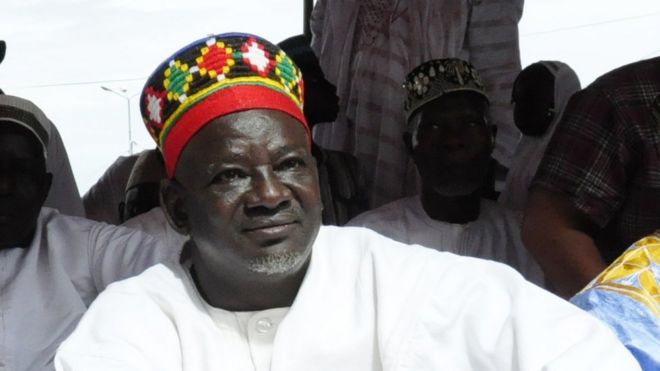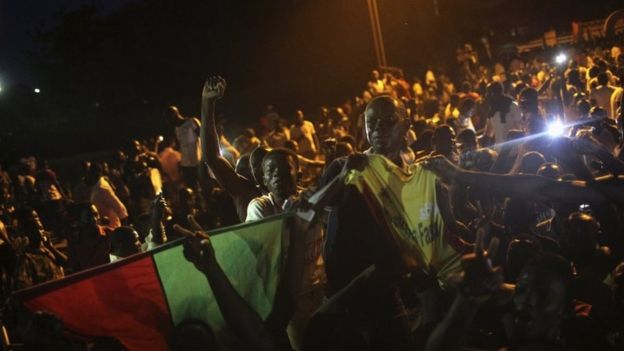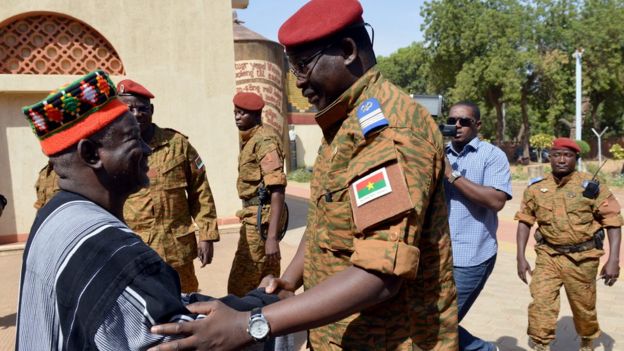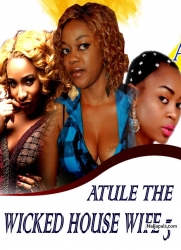Booming Ivory Coast faces elections with confidence
ABIDJAN | BY LOUCOUMANE COULIBALY

Supporters of President Alassane Ouattara queue to enter a pre-election gathering for Ouattara in Abidjan, Ivory Coast, September 13, 2015.
REUTERS/JOE PENNEY

From Abidjan airport's packed arrivals hall to the hotels and plush villas mushrooming across the city, Ivory Coast is booming, a rare African bright spot as the world's biggest cocoa producer bounces back from years of turmoil and civil war.
With elections due in a month, many Ivorians had expected a pause in the post-conflict growth spurt, but such is the confidence in a smooth vote and a second term for incumbent Alassane Ouattara that the expected blip has not materialized.
The government is predicting growth of 9.6 percent this year, making the former French colony the stand-out performer on a continent being hammered by a slump in commodity prices, capital outflows and tumbling currencies.
The International Monetary Fund's assessment is only marginally less bullish, while the bustle on the streets of the commercial capital attests to the turnaround in the four years since the nation's second civil war in less than a decade killed 3,000 people.
"There are many European businessmen arriving these days," airport taxi driver Fabrice Toha said with a smile. "All the taxi drivers can see that the country is doing well and many of us think that Ouattara has a good chance of another term."
The airport had 1.3 million passengers in 2014, double the tally from four years ago.
A stone's throw away, dozens of construction workers swarm around the inside and outside of the 261-room Radisson Blu Abidjan, one of several high-end hotels due to open before the end of this year.
Kome Cesse, the entrepreneur behind the project, said the investment was based as much on faith in the government's record since the war as the rosy outlook for Francophone West Africa's largest economy.
For Cesse, fears of any repeat of the mayhem that followed 2010 elections, when then-president Laurent Gbagbo - now in The Hague accused of crimes against humanity - refused to accept defeat at the hands of Ouattara, are overblown.
"All over Africa, whenever there are elections, there's tension," he said, raising his voice over the din of construction work. "But for African investors like us, we are used to it and we deal with it."
Elsewhere, in the capital's chic Cocody neighborhood, Sofitel's lavish Hotel Ivoire - the pre-eminent symbol of Abidjan's post-colonial 1960s heyday - has undergone a face-lift. Its rooms, starting at over $250 per night, are regularly fully booked.
RETAIL LEADER
Besides the strong growth, businessmen point to generous terms offered by Ouattara's administration, such as VAT exemption, reduced customs duties and promises of compensation in the event of social unrest.
The government has also sought to spur on the private sector with heavy investments in long-neglected infrastructure.
New bridges and highways have eased traffic congestion in Abidjan and have cut travel times to other cities. And a revamping of the power grid, already the region's most reliable, has ensured that manufacturing and industrial sectors don't face the extended black-outs that plague Ivory Coast's neighbors.
Those investments appear to have borne fruit already.
On Friday, Dutch brewer Heineken [HEININ.UL] and French industrial group CFO laid the first stone for a new 150 million euro ($169 million) brewery.
"Our business is pretty simple. It's about population, urbanization, economic growth and a stable political setting," said Roland Pirmez, head of Heineken in Africa, the Middle East and Eastern Europe.
"Today we see that all of those parameters in Ivory Coast are extremely positive. It's the right moment to invest."
Ivory Coast ranked second behind Nigeria this year on Nielsen's African Prospects Indicator, an index combining macro-economic, business, retail and consumer outlooks.
In the retail sector, where Neilsen ranked its prospects as the most promising on the continent, foreign companies - particular those from France - are piling in.
Giant French supermarket chain Carrefour plans to open a massive hypermarket in Abidjan - its first in sub-Saharan Africa - next month, shrugging off any concerns about violence linked to the Oct. 25 poll.
FNAC, the French retail chain specializing in electronic and cultural goods, is also setting up shop, eager to tap into the rapidly expanding middle class in a nation of 24 million people and average per capita income of over $3,000 a year.
"When you look at the big global brands coming to our country, it means that they are confident that it is lasting," said investment board director Emmanuel Esmel Essis, who is expecting a record of nearly $1 billion in private investment this year, almost double the 2014 total.
BRIDGING THE WEALTH GAP
Banks keen on bankrolling big deals are among the pioneers. South Africa's Standard Bank is seeking to establish a regional hub, and Germany's Commerzbank has also opened a representative office.
A member of the West African franc zone whose currency is pegged to the euro, Ivory Coast offers investors protection from inflation - now at just over 1 percent - and the currency collapses that have hit the likes of Ghana, Nigeria, Kenya, Zambia and South Africa.
In another vote of confidence, the African Development Bank started moving its headquarters back to Abidjan last year, after instability forced it to take refuge in Tunis in 2003.
Still, observers note that Ivory Coast remains a post-conflict nation. The benefits of the recent years of growth have been unevenly distributed and unemployment, particularly among the youth, remains a major concern for those seeking to stave off future instability.
If he indeed wins a second term, Ouattara must use the next five years to improve financial inclusion, said Kevin Murray, Citigroup's managing director for West and Central Africa.
"He's going to have to do some social safety net stuff. That will be a lot easier to do when he has some money to spend," he said. "If he can get the middle class clicking, he'll make this economy thrive."
In the meantime, the signs that some people are already doing quite well abound.
The residential property sector has seen an influx of Moroccan, Chinese, Turkish and European firms, some of them throwing up beach-front duplex villas worth $1 million or more for rich expatriates and well-to-do Ivorians.
"We're very optimistic for everything that has happened since 2012," said Chadi Srour of SIPIM, a real estate promotion firm. "There's nothing wrong with demand. As the country goes forward, we go forward."
(Additional reporting by Joe Bavier and Ange Aboa; Editing by
Ed Cropley and
Andrew Heavens)
Booming Ivory Coast faces elections with confidence










